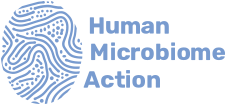Menu

Human–microbes interplay has proven essential for the maintenance of health and well-being and profiling of microbiomes will become an essential feature of the personalized preventive nutrition and medicine of tomorrow. Europe has gained a leading position in microbiome science and yet to fulfill societal expectations, an international consensus will be essential on key aspects. These include clinical trial design as well as analytical standards. The IHMCSA will tackle all necessary steps to open the perspective of managing nutrition and health of the microbial human. Involving key stakeholders representing the multiplicity of actors concerned, including citizens, IHMCSA will map existing material, delineate necessary steps and pathways for innovation and build consensus on priorities and means for the future of microbiome science and its translation. This will lead to recommendations, validated by an international Strategic Steering Committee as well as academies of medicine of the world, directed to the European Commission, international research programs, funding and regulatory agencies and decision makers of health systems. To ensure sustainability of the proposed measures, IHMCSA will promote unified repositories for sharing standards, standard operating procedures and data, and contribute to the structuration of the European Microbiome Centers Consortium with a role in gathering world microbiome networks of excellence. With IHMCSA, human-associated microbiomes will be recognized for their true value in contributing to secure the future of humankind.
Interpretation and generalization of microbiome-based diagnostic and therapeutic approaches are strongly hampered by lack of comparability of study design, different target population as well as the common confounders of microbiome analysis (body site of sampling, geography, drugs, family, etc.). Based on a detailed map of the status of standard operating procedures and other standards (adopted, to adopt, ready, to develop) for clinical metadata, sample collection, DNA extraction and omics data acquisition for different body sites, this we will prepare the foundations for the use of microbiome markers for clinical research and use in general. This will be achieved by dedicated working groups elaborating on the different classes of selection criteria, framework on the readouts and endpoints, in close cooperation with other partners in the consortium. Recommendations on the different topics will be made and will form the basis for microbiome-related clinical research.
EF CLIF reviewed 4,970 registered clinical trials from the U.S. Food and Drug Administration (FDA) and identified 238 trials with available study documents that are intensively investigated regarding to clinical endpoints as well as to inclusion and exclusion criteria. The results were presented and discussed at the 1st Annual Meeting of the Human Microbiome Action in May 2022. The resulting draft for a Delphi questionnaire was discussed and refined at a joint workshop with Work Package 5 and will run through a Delphi process to finalize the recommendations on clinical endpoints in clinical trials afterwards. The final recommendations will result in a standard operating procedure and a position paper for the definition of microbiome and non-microbiome related endpoints in clinical trials targeting or involving the microbiome.
To date, the interpretation and generalization of microbiome-based diagnostic and therapeutic approaches has been severely hampered by the lack of comparability of study designs, different target populations and common confounding factors in microbiome analysis. The microbiome crucially contributes to the progression of chronic liver disease, especially through the gut-liver axis. Minimum standards in clinical trial design and analytical standards will boost future microbiome science and will lead to reliable diagnostic and therapeutic microbiome-based approaches more quickly.
Jonel Trebicka, IHMCSA member

This study received funding from the European Union’s Horizon 2020 research and innovation programme under grant agreement no. 946590.
European Foundation for the Study of
Chronic Liver Failure
Travessera de Gràcia 11, 7th floor
08021 Barcelona, Spain
© European Foundation for the Study of Chronic Liver Failure 2024
 We use cookies on our website to give you the most relevant experience by remembering your preferences and repeat visits. By clicking “Accept”, you consent to the use of ALL the cookies. However you may visit Cookie Settings to provide a controlled consent.
We use cookies on our website to give you the most relevant experience by remembering your preferences and repeat visits. By clicking “Accept”, you consent to the use of ALL the cookies. However you may visit Cookie Settings to provide a controlled consent.| Cookie | Duration | Description |
|---|---|---|
| cookielawinfo-checkbox-analytics | 11 months | This cookie is set by GDPR Cookie Consent plugin. The cookie is used to store the user consent for the cookies in the category "Analytics". |
| cookielawinfo-checkbox-functional | 11 months | The cookie is set by GDPR cookie consent to record the user consent for the cookies in the category "Functional". |
| cookielawinfo-checkbox-necessary | 11 months | This cookie is set by GDPR Cookie Consent plugin. The cookies is used to store the user consent for the cookies in the category "Necessary". |
| cookielawinfo-checkbox-others | 11 months | This cookie is set by GDPR Cookie Consent plugin. The cookie is used to store the user consent for the cookies in the category "Other. |
| cookielawinfo-checkbox-performance | 11 months | This cookie is set by GDPR Cookie Consent plugin. The cookie is used to store the user consent for the cookies in the category "Performance". |
| viewed_cookie_policy | 11 months | The cookie is set by the GDPR Cookie Consent plugin and is used to store whether or not user has consented to the use of cookies. It does not store any personal data. |